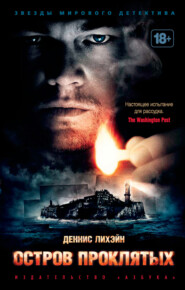По всем вопросам обращайтесь на: info@litportal.ru
(©) 2003-2024.
✖
The Terrorists
Автор
Год написания книги
2019
Настройки чтения
Размер шрифта
Высота строк
Поля
‘But I do. Even if I don't say so very often.’
‘You should say what you think,’ said Rhea. ‘Come on, let's go to bed.’
Twenty minutes later he had fallen asleep with his cheek against her shoulder.
Her shoulder soon grew numb, and then her arm. She didn't move, but just lay awake in the dark, liking him.
5 (#u68dcb960-0e3c-5a4f-a70c-b0360b1758a9)
The last commuter train of the night from Stockholm's Central Station stopped at Rotebro and dropped a single passenger.
The man, wearing a dark blue denim suit and black trainers, walked briskly along the platform and down the steps, but as he left the bright lights of the station behind him, he slowed down. He continued unhurriedly through the older villa section of the suburb, past the fences, low walls and well-cut hedges that surrounded the gardens. The air was chilly, but still and full of scents.
It was the darkest part of the night, but it was only two weeks to the summer solstice and the June sky arched deep blue above his head.
The houses on either side of the road lay dark and silent, the only sound that of the man's rubber soles against the pavement.
During the train journey, he had been uneasy and nervous, but now he was feeling calm and relaxed, his thoughts wandering their own ways. A poem by Elmer Diktonius came to his mind, its cadence matching his steps.
Walk carefully along the road
But never count your steps,
For fear will kill them.
From time to time he had tried to compose poetry himself, with indifferent results, but he liked reading poetry and had learned by heart many poems written by his favourite poets.
As he walked he kept his hand firmly clenched around the solid iron bar, over a foot long, that he was carrying thrust up the right sleeve of his denim jacket.
When the man had crossed Holmbodavägen and was approaching a street of terraced houses, his movements grew more cautious and his stance more alert. Up to now he had met no one and he was hoping his luck would hold for the short stretch remaining before he reached his goal. He felt more exposed here, the gardens were behind the houses, and the vegetation in the narrow strip between the fronts of houses and the pavement consisted of flower beds, bushes and hedges that were too low to offer any protection.
The houses along one side of the road were painted yellow, those opposite red. This appeared to be the only difference; their exteriors were otherwise identical, two-storey houses of wood, with mansard roofs. Between the houses were garages or tool-sheds, squeezed in as if to link the houses together as well as to separate them.
The man was on his way to the furthest row of houses, beyond which the buildings ceased and fields and meadows took over. He slipped swiftly and silently up to the garage next to one of the houses on the corner, as his eyes swept the terraces and the road. There was no one to be seen.
The garage had no doors, and there was no car inside, only a woman's bicycle leaning against the wall just inside the entrance, and opposite that a dustbin. Furthest in, by the far wall, were two large rectangular wooden crates standing on end. He had been worried that someone might have moved them away. The hiding place had been decided on beforehand and he would have found it difficult to find another one as good.
The space between the packing cases and the wall was narrow,but wide enough for him to squeeze into. He wriggled in behind the crates, which were solidly constructed of rough pine and about the same size as coffins. When he had assured himself that he was completely hidden he drew the iron bar out of his sleeve. He lay face down on the damp, cold cement floor, his face buried in the crook of his arm. In his right hand was the iron bar, still warm from the heat of his body. Now he had only to wait as the summer night outside gradually grew lighter.
He was awakened by the twittering of birds. Getting to his knees, he looked at his watch. Almost half-past four. The sun was just rising; he had four more hours to wait.
Just before six, sounds began to come from inside the house. They were faint and indefinite and the man behind the wooden crate felt like pressing his ear to the wall, but dared not as he would then be visible from the road. Through a narrow slit between the two crates he could see a bit of the road and the house opposite. A car passed, and shortly afterwards he heard an engine start up nearby and then saw another car go by.
At half-past six he heard steps approaching on the other side of the wall; it sounded like someone in clogs. The thumping faded away and came back several times, and finally he heard a deep female voice saying quite clearly, ‘Bye, then. I'm going. Will you call me this evening?’
He could not make out the reply, but heard the front door open and close. He stood quite still with his eye to the crack.
The woman in clogs came into the garage. He could not see her, but heard a small click as she unlocked the bicycle and then the crunch of her steps on the gravel path leading out to the road. The only thing he saw as she cycled past was that her trousers were white and her hair long and dark.
He scanned the house across the road. The blinds were down in the only window that was within his field of vision. He clamped the iron bar under his jacket with his left arm and moved three steps away from the protection of the crates, put one ear against the wall and listened, his eye on the road outside. At first he could hear nothing, but he soon caught the sound of steps vanishing up some stairs.
The road was empty. Far away he heard a dog bark and the distant grumble of a diesel engine, but in the immediate vicinity everything was quiet and still. He pulled on his gloves, which had been rolled up inside his jacket pockets, slipped quickly along the garage wall, stepped around the corner and pressed down the handle of the front porch door.
As he had expected, it was unlocked.
He held the door ajar, heard footsteps up on the next floor, established with a swift glance that the road was still empty, and slipped inside.
The tiles of the porch were a step lower than the parquet flooring of the hall, and he stood there looking to the right, through the hall and into the large living room. He was already familiar with the layout of the house. There were three doors to the right, the middle one open – that was the kitchen. The bathroom lay behind the door to the left in the hall. Then the stairs to the upper floor. Beyond them was the part of the living room hidden from him facing the garden at the back of the house.
To his left hung a row of outdoor clothes, and on the tile floor beneath them were rubber boots and some sandals and shoes. Straight ahead of him, immediately opposite the door from the porch, was yet another door. He opened it, went in and shut it soundlessly behind him.
He found himself in a kind of combined storage and utility room. The boiler for the central heating was there. Washing machine, dryer and pump stood along one wall beyond the heating unit. Along the other wall were two large cupboards and a workbench. He glanced into the cupboards. In one hung a ski suit, a sheepskin coat and other clothing seldom used, or put away for the summer. The other held a few rolls of wallpaper and a large tin of white paint.
The sounds from above had ceased. The man held the iron bar in his right hand as he opened the door a crack and listened.
Suddenly steps could be heard coming down the stairs and he hurried to close the door, but remained standing there with his ear to the wooden door-panel. The steps could not be heard so clearly down here, probably because the person out there was either barefooted or in his stocking feet.
There was a clatter in the kitchen, as if a saucepan had fallen to the floor.
Silence.
Then steps approached and the man tightened his grip on the iron bar. But he relaxed it again when he heard the bathroom door open and then the rush of water in the toilet. He opened the door a crack again and peered out. Over the sound of rushing water, he heard the peculiar sounds that arise when someone tries to sing while brushing his teeth. This was followed by gargling, throat clearing and spitting. Then the song started up again, clearer now and with shrill power. He recognized the song despite the fact that the rendering of it was horribly out of tune and that he had not heard it sung for at least twenty-five years. ‘The Girl in Marseille’ he thought it was called.
‘… but then one dark night, in the Mediterranean moonlight, I lay dead in an alley, down by the old harbour …’ came from the bathroom as someone turned on the shower.
He stepped out and on tiptoe crept up to the half-open bathroom door. The noise of the shower did not drown the song, which was now mixed with snorts and puffings and blowings.
The man stood with the iron bar in his hand and looked into the bathroom. He looked at the reddening shiny back with two rolls of fat hanging between the round cushions over the shoulder blades and the place where the waist should have been. He looked at the sagging buttocks, trembling over dimpled thighs, and the bulging veins at the back of the knees and knobbly calves. He looked at the fat neck and the skull, which shone pink between thin strands of black hair. And as he looked and took the few steps towards the man standing in the bath, he was filled with loathing and disgust. He raised his weapon, and with the force of all his hatred, split the man's skull with one blow.
The fat man's feet slid backwards on the slippery enamel and he fell face down, his head thumping against the edge of the bath before his body came to rest with a smacking sound under the shower.
The killer leaned over to turn off the taps and saw how blood and brain tissue had mixed with the water and were swirling down the drain, which was half blocked by the dead man's big toe. Revolted, he grabbed a towel and wiped the weapon, threw the towel over the corpse's head and thrust the iron bar up the wet sleeve of his jacket. Then he closed the bathroom door and went into the living room, opening the glass doors into the garden, where the lawn bordered on the broad fields surrounding the area.
He had to walk a long stretch across open fields to reach the edge of the woods on the other side. A beaten path ran diagonally across the field and he began to follow it. Further on, the ground was cultivated and green with sprouting seed. He did not turn around, but out of the corner of his left eye he sensed the long rows of houses with their angled roofs and shining windows in the pointed gables. Every window was an eye staring coldly at him.
As he approached the first group of trees on a small rocky slope surrounded by thick bushes, he turned off the path. Before he pushed his way through the prickly blackthorn bushes to vanish among the trees, he let the iron bar slide out of his sleeve and vanish into the tangled undergrowth.
* * *
Martin Beck was sitting alone at home, leafing through an issue of Longitude as he listened to one of Rhea's records. Rhea and he did not really have the same tastes in music, but they both liked Nannie Porres and often played her records.
It was a quarter to eight in the evening and he had considered going to bed early. Rhea was at a meeting of the parent-teacher association of her children's school, and anyway they had already celebrated Swedish Flag Day in a satisfactory manner that morning.
The telephone rang in the middle of ‘I Thought About You’, and as he knew it could hardly be Rhea, he was in no hurry to answer it. It turned out to be Chief Inspector Pärsson in Märsta district, known to some people as Märsta-Pärsta. Martin Beck considered the nickname infantile and always thought of him as Pärsson in Märsta.
‘I called the duty officer first,’ Pärsson said, ‘and he thought it'd be okay to call you at home. We've got a case out here in Rotebro which is clearly murder. The man's had his skull bashed in with a powerful blow to the back of his head.’
‘Where and when was he found?’










